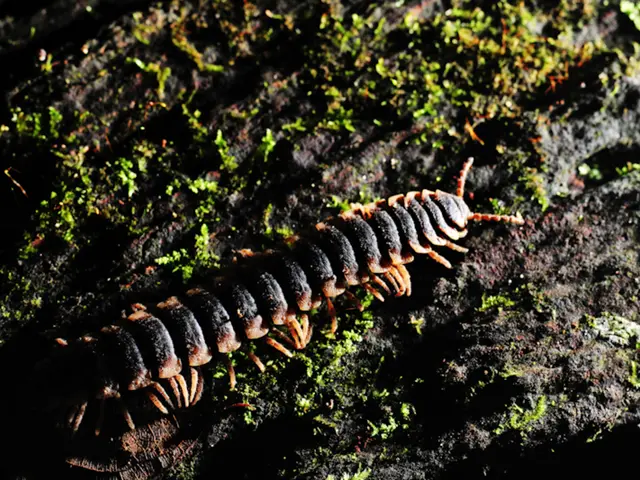Skin Cancer Warnings from a Harvard-educated Dermatologist: Key Signs to Detect Promptly
Worldwide, skin cancers, particularly basal cell carcinoma (BCC), are the most prevalent cancer type, accounting for millions of cases annually. According to data from the World Health Organization, there were approximately 330,000 new cases of melanoma, a severe skin cancer, in 2022, with nearly 60,000 associated deaths.
BCC's incidence varies significantly across countries, with men being more afflicted than women in many regions. A dermatologist trained at Harvard, Dr. Daniel Sugai, has recently warned the public about potentially harmful skin spots that may resemble minor blemishes.
In an advisory posted on TikTok, Dr. Sugai urged patients to seek medical attention if they have persistent pimples that linger beyond a month. Additionally, he highlighted spots that bleed as a cause for concern. "If you have a spot that's not fully healing or is very delicate with gentle trauma, like washing your face, definitely see your dermatologist," said Dr. Sugai, based in the Seattle area.
According to The New York Post, both persistent pimples and bleed-prone spots could be early signs of BCC, the most common type of cancer. Approximately 3.6 million Americans are diagnosed with BCC each year, according to the Skin Cancer Foundation.
BCC originates from basal cells, which produce new skin cells as old ones die off. It develops tree-like blood vessels to facilitate growth, making it prone to bleeds. BCC may manifest as a pimple that fails to heal, a shiny, skin-colored bump, a white or waxy lesion, a flat, scaly patch, or a lesion that is black, brown, or blue.
Addressing patients of color, Dr. Sugai noted that BCC commonly presents as pigmented. "It's usually hyperpigmented with some red mixed in," he said, "and with time, it will start to be an eroded plaque that will bleed easily."
Regarding the global prevalence of BCC, it is highest in high-sociodemographic index (SDI) areas, such as North America and Western Europe, due to lifestyle factors and increased UV radiation exposure. Countries like Australia and North America have the highest rates of skin cancers, including BCC, due to intense UV exposure. East Asia is experiencing a rapid increase in BCC incidence, with all annual percentage changes exceeding 6%. China, Japan, and India are among the countries seeing significant growth in BCC cases, driven by aging populations, lifestyle changes, and increased awareness of skin cancer.
Early detection is crucial for effective BCC treatment. If you notice any suspicious skin changes, consult a dermatologist promptly for further examination.
- "In light of the rising incidence of basal cell carcinoma (BCC), a dermatologist, Dr. Daniel Sugai, has advised the public to be vigilant about early signs such as persistent pimples and spots that bleed, which could potentially be warning signs of this common skin cancer."
- "Given the prevalence of BCC globally, particularly in high-sociodemographic index areas, and the fact that it is broadly found in various forms such as pimples, skin-colored bumps, and pigmented lesions, it is essential to prioritize regular health-and-wellness check-ups, especially when it comes to skin-care, to ensure timely detection and treatment of this condition."








